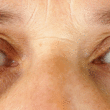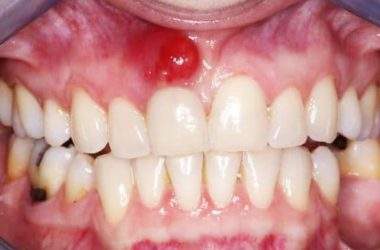Body odor, or osmidrosis, bromhidrosis and ozochrotia, is the perceived unpleasant smell given off by the body. It’s a direct result of bacteria breaking down sweat into acid. Food and certain medical conditions can also lead to the body giving off an unpleasant smell.
We’ve all had to deal with body odor one time or another, though the causes and severity may vary from person to person. In the extreme, body odor can result in anxiety, depression and other adverse psychological reactions.
There are artificial and synthetic remedies for body odor, but they can be harsh and ineffective even in treating the underlying cause for the odor. Understanding the causes of body odor is the key to properly combatting the problem. Several natural remedies exist to help you manage this malodourous dilemma, giving yourself a cooler, fresher feel.
Body Odor Causes
1. Sweat and bacteria
Everybody sweats; it’s a natural process that allows the body to cool down. We have 3 to 4 million sweat glands scattered all over the body, of which are two types:
• Eccrine glands – sweat glands that open via coiled ducts directly unto the skin’s surface.
• Apocrine glands – are type of sweat glands that develop in areas where hair follicles are abundant, such as the groin and armpits, and empties into the follicle before it opens unto the skin surface.
Eppocrine glands are responsible for regulating body temperature. When the body temperature rises, it secretes sweat, composed mostly of water and salt, onto the skin surface where it evaporates and cools the body down.
Apocrine glands, in contrast, produce a milky fluid commonly produced when you’re under emotional stress. This in itself is odorless until it interacts with bacteria found on your skin. Bacteria breakdown the protein into aromatic fatty acids, which gives off the unpleasant odor.
Two types of acid are normally present when there is body odor:
• Propionic (propanoic) acid – produced by propionibacteria as it breaks down amino acids. It is associated with a pungent, vinegar-like smell.
• Isovaleric acid –source of body odor produced by the bacteria Staphylococcus epidermidis. It is associated with a strong cheese-like smell.
2. Food
Some foods contain compounds that can alter your sweat. Sweat doesn’t smell, but when bacteria begins to breakdown the amino acids in your sweat, the result can be quite malodorous. Food that commonly cause body odor include:
• Red meat – the amino acid carnitine found in red meat, such as pork and beef, are known to leave a residue in the intestine. This residue is broken down by an enzyme called monooxygenases for an odorless excretion. A smelly odor can result, however, When this digestive flaura is in low supply or missing,
• cruciferous and allium vegetables – Garlic, onion, leeks, shallots and scallions belong to the allium family, while cauliflower, broccoli, cabbage brussels sprouts and bok choy are cruciferous vegetables. These vegetables all have sulfur-containing compounds, which give off a smell similar to that of rotten eggs. These sulfur compounds can get into your blood stream and change your body odor
• Alcohol – your liver metabolizes alcohol into acetic acid. Some of this is released through the respiratory system and through your sweat. So when you drink too much alcohol, your breath just doesn’t smell bad, you smell bad too.
• Low-carb diet – people following a low-carb diet may notice that their body odor smells like eggs or ammonia. This is because the body produces acidic smelly compounds called ketones when it’s deficient in carbohydrates.
3. Medical condition
Some medical conditions can change how much a person sweats. Such For example, menopause and hyperthyroidism, or an over active thyroid, can make a person sweat more.
Likewise, there are other conditions that change the way a person sweats, consequently changing how that person smells. Conditions like diabetes, kidney disease and liver disease can alter the consistency of sweat, making the patient smell differently.
Natural Treatment for Body Odor
1. Take a bath every day.
One way to combat body odor is to limit the activity of bacteria on your skin. The Mayo Clinic advises to take daily baths, particularly with an anti-bacterial soap, in order to reduce the growth of bacteria on your skin.
2. Apply aluminum-free antiperspirants
Most antiperspirants contain aluminum in order to clog the pores and stop your sweat glands from perspiring. Without sweat, the bacteria cannot breakdown the amino acids that produce the unpleasant odor.
Antiperspirants are considered over the counter drugs because they affect the physiology of the body. And like with most drugs, using antiperspirants containing aluminum compounds is not without risks. Some studies suggest that the aluminum compounds used in antiperspirant increases the risk for breast cancer. Aluminum is absorbed into the skin and interacts with DNA, subsequently leading to cancerous changes in cells. It may also interfere with the action of estrogen, which is known to stimulate the growth of breast cancer cells.
Antiperspirants and deodorants containing the crystal alum afford better alternative to aluminum-containing antiperspirants. Alum has anti-bacterial properties that helps hinder the growth of bacteria on the skin.
3. Vinegar spritz
Vinegar has an antiseptic effect and can help kill bacteria on the skin Spritz white apple cider vinegar on odorous areas and then wipe it dry to eliminate malodourous smells.
4. Wear natural fibers.
The Mayo Clinic advises to wear clothes that are made from natural fibers, such as cotton and silk, to afford greater breathability and air flow on your skin.
5. Change the food that you eat
The Mayo Clinic suggests to avoid spicy foods, caffeinated drinks and foods with overpowering, pungent smells. These foods make you sweat or may alter the way you smell.













